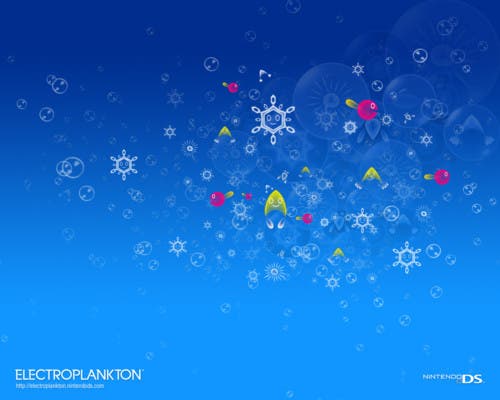Saturday Soapbox: At What Point Does a Game Become a Toy?
Pure playfulness, from physics simulations to Windowsill.
I spend a frightening amount of my spare time pretending that I'm God. Or rather, I spend a frightening amount of my spare time playing From Dust, in which you get to play as God, but only if you happen to view God as a cross between a mouse pointer and a vacuum cleaner. Most evenings you'll find me in the middle of the primordial gloop, inhaling sand and then dumping it out again into wonderful sagging mini-mountains, dribbling ridges of hot rock along the edges of canyons, or simply slurping stray water out of a pit I've just punched into the ground.
I was one of those brainless, aimless sort of children who was always digging holes in the back garden: holes for a cat to fall into, and holes that accidentally exposed crucial pieces of council infrastructure. From Dust allows me to return to my long-lost hobby, but with fewer risks of accidentally uncovering the local cesspit while I'm at it, or disinterring the beloved remains of Compton the hamster, who died in late 1990 during a burst of ill-conceived hamster gymnastics.
Know what else I spend a lot of time doing? Defending From Dust. I thought everybody would love Eric Chahi's mysterious and open-ended god game as much as I do, but that's apparently not the case. People don't like the AI path-finding, or they find some of the plant elements a little too artificial. They find missions a bit unpredictable, and sometimes feel like they sneak a win on pure luck.

The thing is, I'm not sure they're wrong. I think that to truly enjoy From Dust you have to play it differently. Play it as a game - which is, granted, exactly what it was sold as - and it can be extremely infuriating. Beneath the missions, the narrative arc and the side challenges, though, it's something else: a place to spend lazy, oddly hypnotic hours moving earth around and throwing lava into water, painting with mountain ranges, and watching grass spread across irrigated land.
The penultimate level of From Dust is one of the most divisive. It took me three freakin' hours to complete, and I loved every minute of it. A lot of people didn't, and, actually, I can see why not: for most of those three hours, I'd totally lost track of what I was meant to be doing. I think I was humming to myself, too. I probably looked like Richard Dreyfus in Close Encounters.
So after months of defending From Dust as a game, I've stopped with all that. I've realised that I don't play it as a game. I play with it as a toy. And I don't think From Dust is the only example of this.
Last week, in fact, gave me another one: Joy Ride Turbo. I'm not about to pretend that this is anywhere near as engrossing or elegant as From Dust, but if you step away from the main championship events, you'll find that the Stunt Park offers the same kind of opportunities for hypnotic freeform muddling around.
I don't even go after the trophies or the spare car part boxes anymore: I just fling my dinky little rambler from one ramp to the next, grab serious air - I can't believe I'm using that phrase - and enjoy all those crash landings on offer. It's not Mario Kart: instead, it's like playing with Matchbox cars on the carpet, running them up the drapes and under the kitchen table. I wish Joyride spent more of its time realising it isn't Mario Kart. I wish it spent more of its time in Matchbox Land.

Angry Birds gives me a similar sensation - Angry Birds Space, anyway, which moves further away from the first game's Crush the Castle clone origins. On the later levels of Space, the whole thing feels like a fairly precise arcade game, apparently. I wouldn't know. I never reach the later levels. I'm happy enough screwing about in the first few, where I don't even mind what's often seen as randomness and chance.
It's not randomness or chance at all, though: it's simulation. Angry Birds, like From Dust, is a material physics simulator, which is why it's fun to mess around in it, changing the states of certain objects - freezing them, cooling them, smashing them, setting them on fire - and why it's fun to just experiment with cause and effect. Joy Ride Turbo's Stunt Parks, meanwhile, let you explore a decent enough game engine ripped free of the tracks and the time limits and the enemy AI. It's not racing, it's driving - it's driving up walls, and that's always money in the bank.
Windowsill by Vector Park is another one. Certainly, it's kind of a puzzle game, but it's also a digital Activity Bear - a chance to play with different doodads and whatnots. Increasingly, I'd call all of these sorts of things toys rather than games, and it's interesting, perhaps, that they often feel they have to dress themselves up as games in the first place - and frequently to rather mixed responses. They feel the need to channel their playfulness into the rigid structures of genres, even if the rigid structures of genres are the things that ultimately end up annoying people about them - or, worse yet, confusing people.
Are game audiences ready for really open-ended digital toys as an alternative to games? They're ready to enjoy them when they're playing them, at least. I'd argue the physical playfulness of something like the whole Crush the Castle flinging things genre is the main reason for its success, while acing the levels or earning a set amount of stars is often just a way for punters to feel they've justified the time they've spent hunched over their touchscreens.
At the moment, however, the prevailing wisdom seems to be that audiences have to be tricked into buying digital toys. Toys have to be disguised as something else. They don't yet have the framework of expectations around them that allows people to decide whether the proposition is worth it on its own or not, whatever that phrase really means. They're yet to feel entirely legitimate.

There are a few exceptions, of course, and a lot of them are on PC. Day-night cycle aside, Minecraft's still more toy than game, I'd argue, regardless of a lot of the more explicitly game-like elements that have been stuck on top of it in recent updates - and there are dozens of other quirky little oddities like Minecraft, too. Then, of course, there are soundtoys - Electroplankton, PixelJunk 4am, Tonematrix - which have been delighting people in non-linear ways for years across a variety of platforms. Being a toy is still tricky, it seems. Being a toy that also counts as a weird sort of instrument is possibly a little easier.
Almost all games have an element of toy to them, anyway. Mario Galaxy often settles into that aimless, purely playful kind of state, as do most good open-worlders and anything that comes with a level construction suite or really systemic game mechanics - weapons or tools that can be used in a variety of situations, or that can be used to create entirely unexpected outcomes.
Toys aren't purely what you end up with when a game's plot gets out of the way, and it can be hard to separate the rather concentrated playfulness of a toy - if that makes any sense - from the distraction opportunities offered by any decent sandbox game. At the moment, I tend to think toys are closer to feeling like what you get when a basic interaction is so inherently engrossing, it actually rejects most attempts to organise it into something more structured. They're what happens to that sandbox, in other words, when the sand itself washes away all those blinking mission prompts, and you just don't care.
Why am I mentioning this? Perhaps because, watching this E3 unfold, I felt that the absence of toys, the absence of playfulness, was pretty vividly felt in some of the major press conferences. With mobile and PC fairly well marginalised - two great platforms for the creation of toys - and the current consoles settling into a dusty, final-days rut, gaming sometimes looked a little drab and formulaic as a result. A few stand-outs aside, Microsoft, Sony and Nintendo didn't have particularly great shows: they didn't unveil that much that looked fun to just muddle about with. I wonder if what they did reveal was enough to get the next generation of gamers in from the garden where they've all been happily digging holes in the lawn.









-3-31-23-screenshot.png?width=291&height=164&fit=crop&quality=80&format=jpg&auto=webp)




